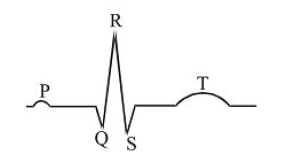Assertion : The 'T-wave' represent return of the ventricle form excited to normal state.
Reason : The end of 'T-wave' marks the end of diastole.
If both Assertion & Reason as true & the Reason is a correct explanation of the assertion.
If both Assertion & Reason are True but Reason is not a correct explanation of the Assertion.
If Assertion is True but the Reason is False.
If both Assertion & Reason are false.
The correct Answer is:C
Step by step video, text & image solution for Assertion : The 'T-wave' represent return of the ventricle form excited to normal state. Reason : The end of 'T-wave' marks the end of diastole. by Biology experts to help you in doubts & scoring excellent marks in Class 12 exams.
Similar Questions
Knowledge Check
- Question 1 - Select One
The end of the T-wave in ECG mark the
Abeginning of Ventricular systoleBend of Ventricular systoleCbeginning of atrial diastoleDend of atrial diastole - Question 2 - Select One
The T-wave in one ECG represents
Areturn of the ventricles from excited stateBbeginning of systoleCelectrical excitation of atriaDdepolarisation of ventricle. - Question 3 - Select One
In ECG, what does T wave represent?
ADiastole of atriaBSystole of ventriclesCSystole of ventriclesDRepolarisation of ventricles

a. The P wave represent the electrical excitation of the_____
b. The QRS complex represents the ____ of the ventricles.
c. The end of T wave marks the end of _____View SolutionT wave on an ECG represents-
View Solution'T' wave in an ECG represents
View SolutionAssertion : A string wave traveling towards a free end changes its direction of motion but phase
Reason : When string wave reaches the free end there is no medium present in front of it.remains constant after reflection.View SolutionWhich of the following wave in ECG marks the end of ventricular systole ?
View Solution


